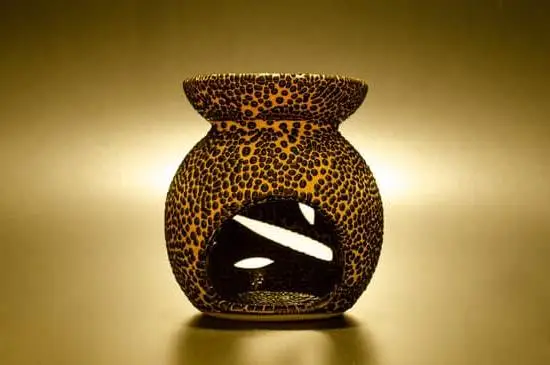Cassia cinnamon aromatherapy has been used for centuries as a natural remedy for various ailments. Originating from the bark of the cassia tree, this essential oil has gained popularity for its numerous therapeutic properties. Aromatherapy, in general, involves the use of plant extracts and essential oils to improve one’s physical and psychological well-being. In this article, we will delve into the origins of cassia cinnamon and explore its benefits, uses, and cultural significance in aromatherapy practices.
The history of cassia cinnamon dates back to ancient China, where it was used for its medicinal properties and as a spice. As an essential oil, cassia cinnamon has been utilized for its antimicrobial and antibacterial properties, making it a valuable tool in promoting overall health. Additionally, it is known to aid in stress relief and relaxation while also enhancing cognitive function and memory. These benefits have made cassia cinnamon an important component of aromatherapy practices worldwide.
When using cassia cinnamon in aromatherapy, there are various methods to consider such as diffuser blends, inhalation techniques, and topical application. Safety precautions should be taken into account, given the potency of essential oils.
Understanding the science behind the chemical components of cassia cinnamon essential oil is crucial in maximizing its therapeutic effects. In the following sections of this article, we will further explore how to use cassia cinnamon in aromatherapy and provide DIY recipes for readers to create their own aromatic blends.
Benefits of Cassia Cinnamon Aromatherapy
Cassia cinnamon aromatherapy offers a wide range of benefits for both the mind and body. One of the key advantages of using cassia cinnamon in aromatherapy is its antimicrobial and antibacterial properties. The essential oil derived from cassia cinnamon has been shown to have strong antimicrobial effects against various bacteria and fungi, making it a popular choice for fighting off infections and boosting the immune system.
In addition to its antimicrobial properties, cassia cinnamon aromatherapy is also known for its stress-relieving and relaxation benefits. The warm, sweet aroma of cassia cinnamon can help to alleviate feelings of anxiety and promote a sense of calm. This makes it an ideal choice for those looking to unwind after a long day or reduce stress levels in general.
Furthermore, cassia cinnamon aromatherapy has been linked to cognitive function and memory enhancement. Research has shown that the scent of cassia cinnamon can improve cognitive performance, particularly in tasks related to attention span, working memory, and visual-motor response speed. This makes it a valuable tool for enhancing focus and mental clarity during work or study sessions.
| Benefits | Details |
|---|---|
| Antimicrobial Properties | Cassia cinnamon essential oil has strong antimicrobial effects against various bacteria and fungi |
| Stress Relief | The warm, sweet aroma of cassia cinnamon promotes relaxation and reduces anxiety |
| Cognitive Enhancement | Research has shown that the scent improves cognitive performance, attention span, working memory, and visual-motor response speed. |
How to Use Cassia Cinnamon in Aromatherapy
Cassia cinnamon aromatherapy can be a wonderful addition to your wellness routine, offering a range of benefits for both physical and mental health. There are several ways to incorporate cassia cinnamon essential oil into your aromatherapy practice, each with its own unique advantages. Here are some methods you can use to enjoy the therapeutic effects of cassia cinnamon in aromatherapy:
- Diffuser Blends and Recipes: One of the most popular ways to use cassia cinnamon in aromatherapy is through diffuser blends. Simply add a few drops of cassia cinnamon essential oil to a diffuser filled with water, and let the spicy, warm aroma fill the air. You can also create custom diffuser recipes by blending cassia cinnamon with other complementary essential oils such as orange or clove for a delightful and invigorating scent.
- Inhalation Methods: Direct inhalation of cassia cinnamon essential oil can provide quick relief from stress and anxiety. Add a drop or two of the oil to a tissue or cotton ball and breathe deeply, allowing the aromatic compounds to calm your mind and uplift your spirits.
- Topical Application and Safety Precautions: When using cassia cinnamon essential oil topically, it is important to dilute it properly with a carrier oil like coconut or jojoba oil. This can then be applied to pulse points, the wrists, or the bottoms of feet for an energizing effect. However, it’s crucial to conduct a patch test first and avoid sun exposure after topical application due to its phototoxicity.
By incorporating these methods into your daily routine, you can experience the numerous benefits of cassia cinnamon aromatherapy while enjoying its warm and spicy fragrance. Whether you choose diffusion, inhalation, or topical application, this ancient practice offers potential relief from stress, improved cognitive function, and enhanced relaxation.
The Science Behind Cassia Cinnamon Aromatherapy
Cassia cinnamon essential oil, extracted from the bark of the Cinnamomum cassia tree, is rich in chemical compounds that contribute to its therapeutic effects in aromatherapy. The main components of cassia cinnamon essential oil include cinnamaldehyde, cinnamyl acetate, and eugenol, which have been found to have antimicrobial, anti-inflammatory, and antioxidant properties. These compounds are responsible for the spicy, warm, and sweet aroma of cassia cinnamon essential oil, making it a popular choice for aromatherapy.
Research and studies on the use of cassia cinnamon in aromatherapy have demonstrated its effectiveness in promoting relaxation, reducing stress and anxiety, and improving cognitive function. A study published in the Journal of Biological Chemistry found that cinnamaldehyde, the primary compound in cassia cinnamon essential oil, has neuroprotective properties and may enhance memory and learning. Another study in the International Journal of Molecular Sciences showed that cinnamaldehyde exhibits antimicrobial activity against various strains of bacteria and fungi.
When compared with other essential oils used in aromatherapy, such as lavender or peppermint, cassia cinnamon essential oil stands out for its unique chemical composition and distinct therapeutic benefits. Its spicy aroma can be invigorating and uplifting, making it an excellent choice for creating blends that promote mental clarity and emotional balance.
Incorporating cassia cinnamon essential oil into your aromatherapy practice can add depth and complexity to your blends while providing a range of physical and emotional benefits. Whether used alone or in combination with other essential oils, cassia cinnamon adds a warm and comforting element to any aromatherapy experience.
| Chemical Components | Therapeutic Effects |
|---|---|
| Cinnamaldehyde | Neuroprotective properties; memory enhancement |
| Cinnamyl acetate | Aromatic compound; relaxation |
| Eugenol | Antimicrobial activity; antioxidant properties |
History and Cultural Significance of Cassia Cinnamon
Cassia cinnamon has a long and rich history that dates back to ancient times. This spice originated from southern China and is derived from the bark of the cassia tree. It was highly prized in ancient Egypt for its aromatic properties and was often used in embalming rituals.
In traditional Chinese medicine, cassia cinnamon was utilized for its warming properties to improve circulation and digestion. Its use in various cultural practices throughout history has contributed to its significance in modern-day aromatherapy.
In ancient rituals and ceremonies, cassia cinnamon was often burned as incense to purify the air and promote spiritual wellbeing. The sweet and spicy aroma of cassia cinnamon essential oil was believed to evoke feelings of warmth, comfort, and positivity. This ancient practice has transcended time and continues to be an integral part of modern aromatherapy, where the scent of this essential oil is used to create a harmonious atmosphere for relaxation and meditation.
Today, the influence of cassia cinnamon can be seen in various modern-day aromatherapy practices. It is used in diffuser blends, room sprays, massage oils, and bath salts to promote relaxation, reduce stress, and enhance cognitive function.
Its cultural significance in ancient rituals has paved the way for its integration into holistic wellness practices around the world. As more people seek natural remedies for physical and emotional ailments, the historical and cultural significance of cassia cinnamon continues to play a vital role in the field of aromatherapy.
The deeply rooted history and cultural significance of cassia cinnamon have made it a staple in aromatherapy practices worldwide. The use of this aromatic spice extends beyond its therapeutic benefits, encompassing centuries-old traditions that have become an integral part of modern wellness routines. As individuals explore the rich heritage of this botanical treasure, they gain a deeper understanding of its impact on physical, emotional, and spiritual wellbeing through the practice of aromatherapy with cassia cinnamon essential oil.
DIY Cassia Cinnamon Aromatherapy Recipes
Cassia cinnamon aromatherapy offers a natural and effective way to enjoy the benefits of this ancient spice. By creating your own DIY recipes, you can personalize your aromatherapy experience and tailor it to your specific needs. From room sprays to massage oils, there are numerous ways to incorporate cassia cinnamon into your daily wellness routine.
Room Spray
One popular way to use cassia cinnamon in aromatherapy is by creating a room spray. To make your own, simply mix distilled water with a few drops of cassia cinnamon essential oil in a spray bottle. Shake well before each use and mist the air in any room to enjoy the warm and inviting aroma of cassia cinnamon. This simple DIY recipe can help freshen up any space while providing the therapeutic benefits of the essential oil.
Massage Oil
For a luxurious and indulgent aromatherapy experience, consider making a homemade cassia cinnamon massage oil. Start by combining a carrier oil, such as coconut or jojoba oil, with a few drops of cassia cinnamon essential oil. Gently warm the mixture before applying to the skin for a soothing and comforting massage experience. The warming properties of cassia cinnamon will promote relaxation and help ease any tension or muscle discomfort.
Bath Salts
Transform your bath time into a spa-like experience with DIY cassia cinnamon bath salts. Combine Epsom salt, sea salt, and baking soda in a bowl, then add several drops of cassia cinnamon essential oil and mix well.
Store the scented bath salts in an airtight container and add them to warm bathwater for an aromatic and therapeutic soak. The combination of soothing salts with the comforting scent of cassia cinnamon will create a relaxing atmosphere for both body and mind.
By incorporating these simple DIY recipes into your self-care routine, you can experience the many benefits of cassia cinnamon aromatherapy in an accessible and enjoyable way. Whether you’re looking for stress relief, cognitive enhancement, or simply want to enjoy its delightful scent, these homemade creations allow you to fully explore the power of this versatile spice in aromatherapy practices.
Where to Purchase Cassia Cinnamon Aromatherapy Products
When it comes to purchasing cassia cinnamon aromatherapy products, there are several options available for consumers. Whether you prefer the convenience of online shopping or enjoy browsing through local stores and markets, there are numerous avenues to explore in order to find high-quality cassia cinnamon essential oil and related items. Here are some suggestions on where to purchase these products:
- Online Retailers: There are many online platforms dedicated to selling essential oils and aromatherapy products. Websites such as Amazon, Etsy, and specialized shops like Plant Therapy and Mountain Rose Herbs offer a wide range of cassia cinnamon essential oil, diffusers, and other related items.
- Local Stores and Markets: If you prefer a hands-on shopping experience, consider visiting local health food stores, wellness boutiques, or farmer’s markets. These establishments often carry a selection of essential oils, including cassia cinnamon, as well as accessories for aromatherapy such as diffusers and carrier oils.
Before making a purchase, it’s important to consider the quality of the products being offered. Look for reputable sellers who provide information about the sourcing and purity of their cassia cinnamon essential oil. Additionally, read reviews from other customers to gauge their satisfaction with the products. Whether you decide to buy online or in person, take your time to choose the best option that meets your needs.
By exploring different retailers and sources for cassia cinnamon aromatherapy products, you can find the right items to enhance your aromatherapy practice. Take the opportunity to learn more about the benefits of using cassia cinnamon essential oil in various applications and how it can contribute to your overall well-being through its therapeutic properties.
Conclusion and Final Thoughts
In conclusion, cassia cinnamon aromatherapy offers a multitude of benefits for both physical and mental well-being. With its antimicrobial and antibacterial properties, stress-relieving and relaxation effects, as well as its ability to enhance cognitive function and memory, it is no wonder that cassia cinnamon has been used in traditional medicine and ancient rituals for centuries.
Its influence on modern-day aromatherapy practices is undeniable, with an increasing number of people turning to this powerful essential oil for its therapeutic effects.
As we have explored the various ways to use cassia cinnamon in aromatherapy, including diffuser blends, inhalation methods, and topical applications with safety precautions in mind, it is important to note the significant research and studies that support its efficacy. The chemical components of cassia cinnamon essential oil play a key role in its therapeutic effects, making it a valuable addition to any aromatherapist’s collection.
For those interested in trying out DIY cassia cinnamon aromatherapy recipes such as room spray, massage oil, or bath salts, there are countless options available for purchase from online retailers or local stores and markets. When selecting high-quality products, it is essential to look for reputable sources that offer pure and authentic cassia cinnamon essential oil.
In closing, I encourage readers to explore the world of cassia cinnamon aromatherapy and experience its healing and soothing benefits firsthand. Whether through further reading or by trying out the different aromatherapy practices suggested in this article, incorporating cassia cinnamon into your daily routine can make a meaningful difference in your overall well-being. So why not give it a try?
Frequently Asked Questions
What Is Cassia Cinnamon Essential Oil Used For?
Cassia cinnamon essential oil is used for a variety of purposes, including its anti-inflammatory and antimicrobial properties. It is often used in aromatherapy as well as for skin care to promote healthy skin.
What Is Cinnamon Aromatherapy Good For?
Cinnamon aromatherapy is good for boosting mood and mental alertness. It can also help with relaxation and stress relief. Some people use it to alleviate symptoms of colds and congestion.
What Does Cinnamon Cassia Essential Oil Smell Like?
Cinnamon cassia essential oil has a warm and spicy aroma, similar to the smell of cinnamon rolls baking in the oven. The scent is comforting and invigorating at the same time, making it a popular choice for aromatherapy and home fragrance.

Are you looking for a natural way to improve your health and wellbeing?
If so, aromatherapy may be the answer for you.





